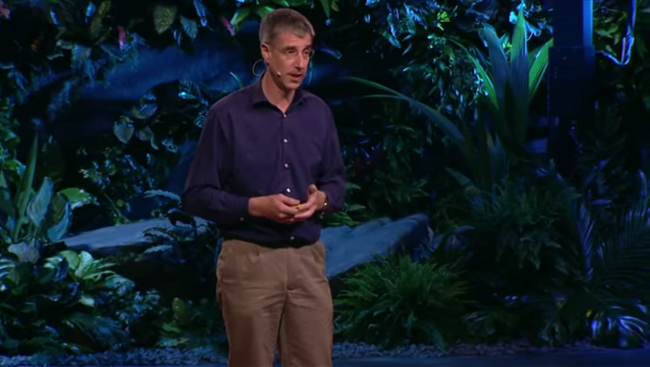Celebrity
Who Is Daniel Wolpert? All About the British Medical Doctor and Neuroscientist

The name Daniel Wolpert stands tall in the world of neuroscience. Known for his groundbreaking research on how the brain controls movement, he has built a reputation as one of the most influential neuroscientists of his generation. Combining a medical background with deep insights into brain function, Daniel Wolpert has dedicated his life to understanding how humans plan, predict, and execute motion.
Quick Bio
| Field | Details |
|---|---|
| Full Name | Daniel Mark Wolpert |
| Date of Birth | September 8, 1963 |
| Place of Birth | London, United Kingdom |
| Nationality | British |
| Education | University of Cambridge (Medicine and Neuroscience) |
| Occupation | Neuroscientist, Medical Doctor, Professor |
| Known For | Research on motor control and brain predictive models |
| Current Position | Professor of Neuroscience, Columbia University |
| Awards | Royal Society Fellowship, Wellcome Trust Fellowship |
| Fields of Expertise | Motor Neuroscience, Computational Neuroscience, Medicine |
Early Life and Background

Born in London, United Kingdom, Daniel Wolpert grew up in an intellectually stimulating environment that nurtured his fascination with science. From an early age, he showed a strong interest in understanding how the human body works, especially the connection between the brain and physical movement. His curiosity about human biology, cognitive processes, and scientific discovery shaped his academic ambitions. Growing up in a supportive family, Wolpert’s early education emphasized curiosity, problem-solving, and innovation — qualities that would later define his career as a neuroscientist.
Education and Academic Journey

Daniel Wolpert pursued his education at some of the United Kingdom’s most prestigious institutions. He attended Cambridge University, where he studied Medicine and developed an interest in Neuroscience. His dual academic background gave him a unique advantage — a deep understanding of both the human body and the complexities of the brain’s computational mechanisms.
During his years at Cambridge, Wolpert earned his Bachelor of Medicine and Bachelor of Surgery (MB BChir), and later, his Ph.D. in Physiology and Neuroscience. His doctoral research explored how the brain generates internal models to predict and control motion. This intersection between medicine and neuroscience became the cornerstone of his lifelong scientific focus. His time at Cambridge also marked the beginning of collaborations that would later evolve into major contributions to computational neuroscience.
Medical Training and Early Career
After completing his medical degree, Daniel Wolpert practiced briefly as a medical doctor, where he gained hands-on experience in clinical medicine. His early medical career offered him a practical understanding of how neurological and muscular systems interact. However, it was during this time that he realized his passion for research was stronger than his desire for clinical practice.
Transitioning from medicine to neuroscience, Wolpert began to apply his clinical insights to experimental studies. He was particularly fascinated by how the brain predicts movement outcomes, even before a person acts. This shift from direct patient care to neuroscientific investigation marked a pivotal moment in his professional journey.
Research Focus and Scientific Contributions
At the heart of Daniel Wolpert’s research lies one profound question: How does the brain control movement? His studies reveal that the brain uses predictive models — internal simulations that anticipate the results of our actions. In other words, when we reach for a cup, our brain doesn’t just react; it predicts what will happen before movement occurs.
Wolpert proposed that these predictive models help minimize sensory delays and make our movements smooth and accurate. His work also emphasizes that motor control is not merely about muscles but about computation — a mental process where the brain performs calculations similar to a computer.
Through numerous experiments and mathematical models, Daniel Wolpert demonstrated that understanding motor control is key to understanding how the brain functions as a whole. His pioneering theories have influenced not only neuroscience but also robotics, psychology, and artificial intelligence, where prediction and control mechanisms are fundamental principles.
Major Positions and Affiliations
Over the years, Daniel Wolpert has held prestigious academic positions that reflect his global influence. He served as a Professor of Engineering and Neuroscience at the University of Cambridge, where he also co-directed the Computational and Biological Learning Laboratory. His work at Cambridge placed him at the forefront of research exploring the neural basis of motion.
Later, he joined Columbia University in New York as a Professor of Neuroscience at the Mortimer B. Zuckerman Mind Brain Behavior Institute. There, he continues to investigate how humans plan and control movement and how the brain integrates sensory information. He is also an active member of professional societies such as the Royal Society and the Society for Neuroscience, and he collaborates with top researchers worldwide to advance the understanding of human motor systems.
Awards and Recognition
The excellence of Daniel Wolpert has been recognized by numerous awards and honors. He is a Fellow of the Royal Society (FRS), one of the highest distinctions for scientists in the United Kingdom. He has also received prestigious fellowships from organizations such as the Wellcome Trust and the Royal Society Wolfson Research Merit Award.
His achievements have not only elevated his personal career but have also inspired the global neuroscience community. Through lectures, conferences, and mentorship, Wolpert has shaped the scientific landscape and trained a new generation of researchers devoted to understanding how the brain orchestrates human movement.
Publications and Research Papers
Daniel Wolpert has authored and co-authored numerous scientific papers that have had a lasting impact on the fields of neuroscience, psychology, and biomedical engineering. His publications often explore topics like sensorimotor learning, predictive coding, and computational modeling of motor control.
Among his most cited works are papers on internal models for motor control and optimal feedback control theory, which have become foundational references for researchers worldwide. His book chapters and journal articles continue to advance our understanding of the brain as a prediction-driven organ. These studies have also influenced the development of neuroprosthetics and human-robot interaction technologies, applying his theories to real-world innovation.
Age and Physical Appearance

As of 2025, Daniel Wolpert is approximately 62 years old. He is described as having a professional and modest appearance, reflecting his academic nature and focus on intellectual pursuits. Known for his calm demeanor and articulate communication style, he presents himself as a thoughtful scientist dedicated to exploration and precision rather than personal fame.
Personal Life and Relationships
While Daniel Wolpert maintains a low public profile regarding his personal life, what is widely known is his dedication to science and education. Information about his family or marital status is kept private, as he prefers to let his research speak for itself. Colleagues describe him as curious, disciplined, and deeply passionate about scientific inquiry. Outside of research, Wolpert enjoys activities that challenge the mind, including puzzles, mathematical modeling, and technological innovation.
Impact on Neuroscience and Medicine
The influence of Daniel Wolpert on neuroscience and medicine cannot be overstated. His research has bridged the gap between neuroscience, psychology, and computational modeling, showing that movement is not simply a physical process but a deeply cognitive one. His theories have enhanced our understanding of diseases such as Parkinson’s, stroke, and motor coordination disorders by explaining how predictive mechanisms can fail in such conditions.
Moreover, his work has inspired interdisciplinary research linking biomechanics, robotics, and artificial intelligence. Engineers now use his models to create robotic limbs and exoskeletons that move more naturally by imitating human predictive control systems. Through this, Wolpert has not only advanced theoretical neuroscience but also contributed to medical technology and rehabilitation science.
Recent Work and Future Endeavors
In recent years, Daniel Wolpert continues to expand his research at Columbia University, focusing on how the brain integrates sensory input and motor output to form adaptive behavior. His lab investigates neural computation, motor learning, and human adaptability, using both experimental and computational methods.
Looking forward, he envisions a future where neuroscience and technology converge to decode the brain’s predictive machinery even further. He advocates for combining machine learning and neuroimaging to map how humans learn new motor skills. His goal is to apply these findings to clinical rehabilitation, robotics, and education — transforming how we think about both learning and movement.
Conclusion
In summary, Daniel Wolpert stands as a visionary scientist whose research has fundamentally changed our understanding of how the brain controls motion. From his beginnings in London to his leadership at Cambridge and Columbia University, he has built a legacy defined by innovation, precision, and intellectual depth. His insights into predictive brain models and motor control continue to influence neuroscience, medicine, and technology on a global scale.
Daniel Wolpert reminds the scientific world that understanding movement is key to understanding the human mind itself — a pursuit that connects biology, computation, and imagination in one remarkable journey.
FAQs
Who is Daniel Wolpert?
Daniel Wolpert is a British neuroscientist and medical doctor known for his research on how the brain controls movement.
What is Daniel Wolpert famous for?
He is best known for developing theories about the brain’s predictive models and motor control.
Where does Daniel Wolpert work currently?
He is a Professor of Neuroscience at Columbia University in New York.
What did Daniel Wolpert study?
He studied Medicine and Neuroscience at the University of Cambridge in the United Kingdom.
What are some key contributions of Daniel Wolpert?
His research explains how the brain uses internal models to predict and plan movements.
Has Daniel Wolpert received any awards?
Yes, he is a Fellow of the Royal Society and has earned several prestigious research fellowships.
How has Daniel Wolpert’s work impacted neuroscience?
His findings have shaped modern understanding of motor learning, brain prediction, and neurorehabilitation.
Is Daniel Wolpert also a medical doctor?
Yes, he originally trained and practiced as a medical doctor before moving into neuroscience research.
What fields does Daniel Wolpert’s research influence?
His work influences computational neuroscience, robotics, psychology, and artificial intelligence.
What is Daniel Wolpert currently researching?
He is studying how the brain integrates sensory and motor information to produce adaptive human behavior.
More Info And Buzz Visit: Dodge Buzz
-

 Celebrity9 months ago
Celebrity9 months agoWho Is Steve Cena? All About John Cena’s Brother and His Life
-

 Uncategorized9 months ago
Uncategorized9 months agoWho is Janet Gayle? All About Gary Burghoff’s Ex-Wife
-

 Celebrity9 months ago
Celebrity9 months agoWho is Nadia Farmiga? All You Need to Know About Vera Farmiga’s Sister
-

 Celebrity9 months ago
Celebrity9 months agoWho Is Samuel Nowlin Reeves Jr.? The Untold Biography of Keanu Reeves’ Father




















